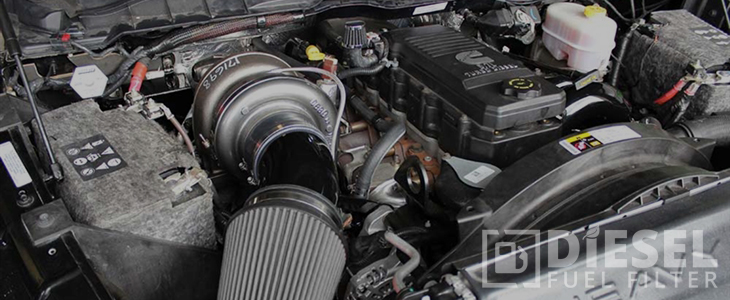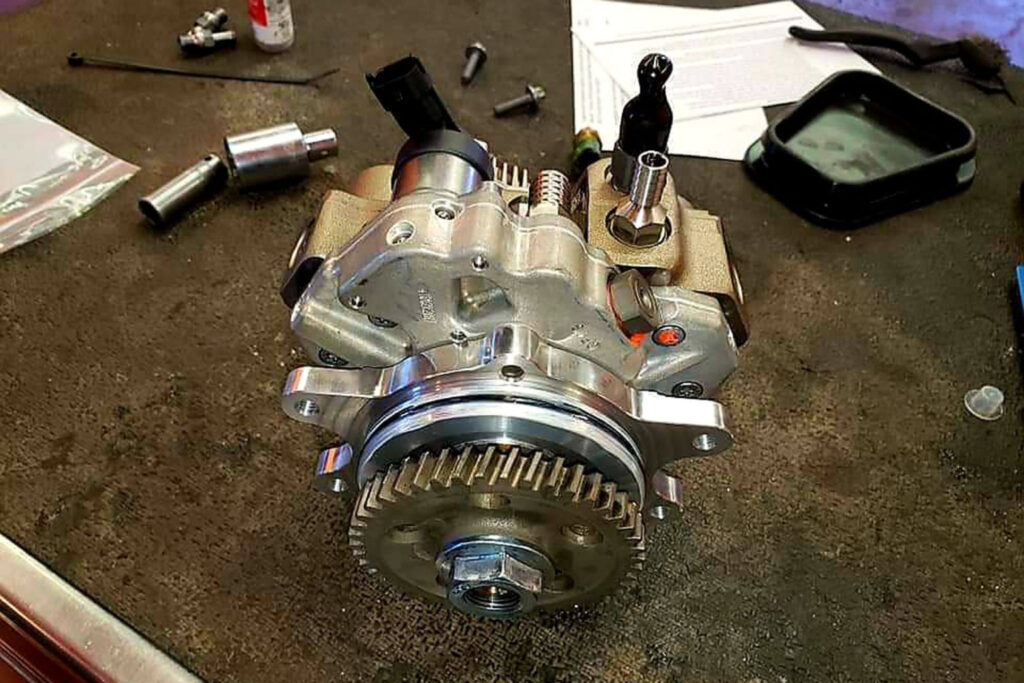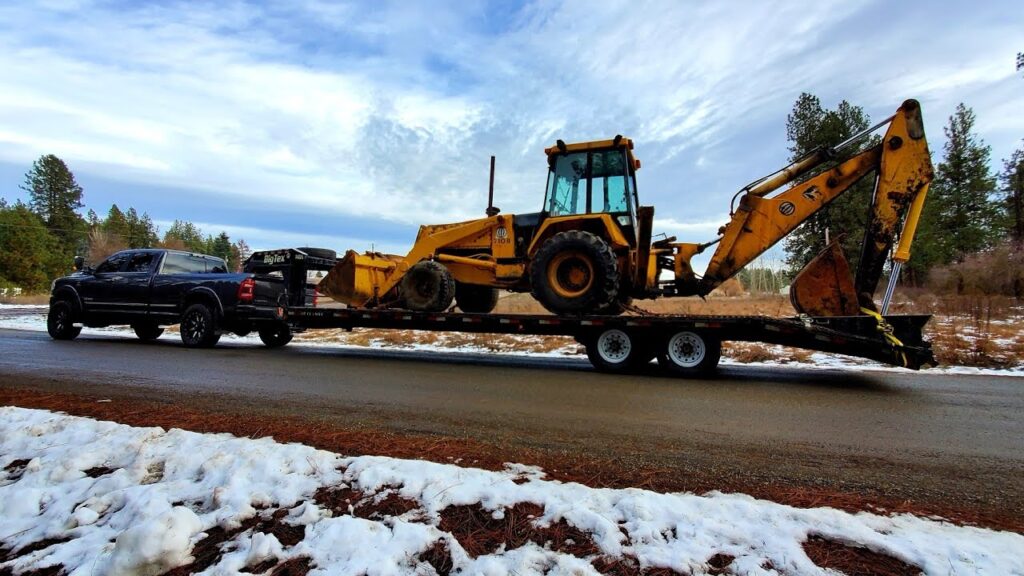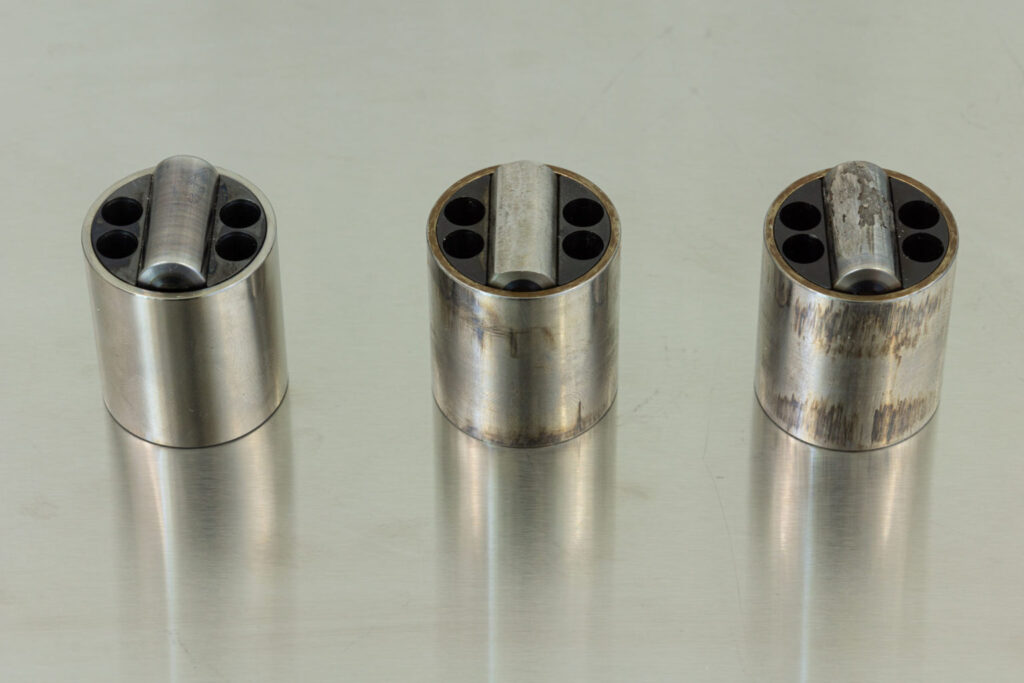
Late Model RAM 6.7L Diesel Trucks Stalling: NHTSA Opens Probe
A couple of weeks ago we were alerted to a probe that the National Highway Traffic Safety Administration (NHTSA) has opened to investigate reports of 2018-2020 RAM 6.7L diesel trucks stalling without warning, while operating at speeds of 25mph+. This probe has been ongoing since 2019 with full cooperation from Stellantis – formerly known as Fiat Chrysler, the parent company of RAM and many other well-known automotive brands.
At this time there have been at least 22 documented reports of trucks that have stalled during normal operation while under load. Being an aftermarket supplier of diesel fuel filters, we wanted to learn more about this problem to better understand the implications for our customers.
CP4 Lawsuit Alleges FCA and Cummins Colluded to Hide the Problem
A recent class-action lawsuit filed by leading consumer rights law firm Hagens Berman points to the Bosch CP4.2 high-pressure fuel pump (AKA CP4) as the culprit. The Bosch CP4.2 high-pressure fuel pump is used in the 6.7L Cummins diesel engine variant found in the RAM 2500, 3500, 4500, and 5500 heavy-duty trucks. It is estimated that at least 600,000 heavy-duty RAM truck owners and lessors could be affected by the high-pressure fuel pump failure problem. The lawsuit alleges that the CP4.2 defect poses an imminent safety risk to the public and goes on to accuse Fiat Chrysler and Cummins of colluding to conceal the critical defect for more than a decade – allowing consumers to unknowingly drive ticking time bombs. Consider this: The 6.7L RAM has a reported 35,000 lb. towing capacity – Can you imagine hauling a heavy 5th wheel, vehicle trailer, or heavy machinery when the fuel pump on your 6,500-mile truck gives out without warning on a busy freeway?
Lubrication is Key – and the EPA’s Mandated Ultra-Low-Sulfur Diesel Fuel Does Not Deliver
Back in 2006 the U.S. Environmental Protection Agency (EPA) mandated that diesel fuel sulfur content be reduced. This angered many people who understood how a diesel fuel system works; they knew that sulfur and its lubricity were what protected their fuel pumps and fuel injectors from failure. At that time, those people foresaw the potential for serious problems which Cummins and Fiat Chrysler customers are now experiencing with the CP4.2 high-pressure fuel pump.
The Bosch CP4.2 high-pressure fuel pump fails for two reasons:
1. It is made of aluminum and has roughly 20 percent less flow volume compared with earlier CP generations, which means it endures more stress without being as durable.
2.Ultra-low-sulfur diesel fuel doesn’t provide enough lubricity, which leads to excessive metal wear and ultimately – metal debris in the fuel system
Here is Bosch’s description of how the CP4.2 works:
“The high-pressure pump CP4.2 delivers the fuel into the connected rail under high pressure. The CP4.2 consists of one or two high-pressure elements, each integrated in a housing with its own camshaft. The pump camshaft is driven by belts, chains, or cogwheels and moves the pump pistons to generate the required high pressure.”
And here is a portion of what the RAM CP4.2 lawsuit claims:
“If the fuel used with the CP4.2 pump is not sufficiently lubricious—which most U.S. diesel is not—the cam and rollers wear against each other and generate tiny metal shavings that disperse throughout the high-pressure fuel injection system.“
3 Ways Owners and Service Professionals Can Protect Themselves
The excerpts above should give pause to fuel filter installers whether professional or DIY. What is described is a condition known as cam erosion. In the case of the CP4.2, insufficient lubricity of ultra-low-sulfur diesel allows metal on metal friction within the pump, which is never a good thing. This troubling scenario is compounded by the fact that the CP4 differs from previous generations in that it is made of aluminum and not as durable. When cam erosion happens, metal shavings become wedged between the rollers and buckets which adds to the friction and eventually flattens the rollers with the excessive heat generated.
Highway safety aside, another serious consequence in all of this is that the metal shavings will eventually circulate throughout the fuel system. If the fuel pump hasn’t failed yet, there could be other significant problems such as obstructed low-pressure fuel lines, clogged fuel injectors and prematurely occluded fuel filters.
1. Don’t Neglect Fuel Filter Maintenance
This should go without saying but you’d be surprised to learn how many people go way over the recommended change interval for diesel fuel filters. There have been cases of CP4 failures where lack of fuel filter maintenance was blamed. In a 6.7L Cummins powered truck with the CP4 high-pressure fuel pump, failure to stick to the recommended change intervals is asking for trouble.
2. Look for Metal Shavings in the Fuel Filter
Fuel that is not sent to the injectors after it passes through the high-pressure pump is recirculated back into the fuel tank and along with it would go the metal shavings generated by cam erosion. Those metal shavings will eventually find themselves in the fuel filter and should be noticeable upon replacement of the filter.
3. Be Mindful of the Fuel Used
Since the root of this problem (a significant part of it anyway) lies in the poor lubricity of U.S. diesel fuel, it is wise to strive for major brand diesel from high-traffic gas stations as often as possible.
The purpose of this post is not to bash RAM or Cummins, as the CP4 also has problems in Chevrolet’s 6.6L Duramax as well as Ford’s 6.7L Powerstroke for the same reasons. The RAM 6.7L just happens to be in the crosshairs of the NHTSA right now. The reality is that anyone who owns a diesel-powered truck with the Bosch CP4.2 high-pressure fuel pump in the U.S. should be wary because of the fuel that’s available. Multiple aftermarket sources have developed solutions to mitigate the CP4.2 problems and for good reason. If these pumps don’t fail early, as we’ve seen with the late model heavy-duty RAM, they’re almost certain to fail at or before the 100,000-mile mark. Considering the $8,000 – $10,000 cost to overhaul a fuel system when the pump fails, these solutions are worth looking into. If nothing else, stick to the basics: Never neglect diesel fuel filter maintenance. During service, pay close attention to what the fuel filter has collected and investigate further if metal shavings are found. And finally, try to use high-quality diesel fuel consistently.
Tags: Bosch, CP4, CP4.2, Diesel, High-Pressure Fuel Pump, NHTSA, RAM, RAM 6.7L
Categories: Aftermarket Insights, Filters, Fuel FiltersShare this entry


